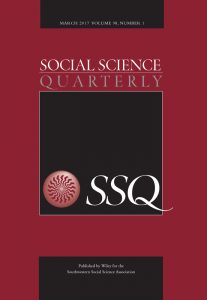The same old ‘New Politics’? Or has Corbyn just done something historic?

Corbyn on the front bench of the House of Commons for his first PMQs.
Yesterday I had to pinch myself when I saw Jeremy Corbyn on the front benches of the House of Commons, facing David Cameron as the leader of the British Labour party. Corbyn is the man who has spent all of his adult lifetime on the fringes of mainstream politics, an unapologetic socialist campaigner who has fought many of the battles of the left: against South African apartheid and Thatcherite deindustrialisation in the 1980s, against the introduction of university tuition fees in the late 1990s, against the invasion of Iraq in the 2000s, against government austerity since 2010, and, like me, a lifelong campaigner against nuclear weapons. Since becoming an MP in 1983, Corbyn’s been a member of the awkward squad on the far-left of the Labour party, someone who could usually be ignored by his old bosses Blair, Brown and Miliband.
Yesterday, the bearded hero of Old Labour battled it out with the Prime Minister across the dispatch box at his first session of PMQs. Corbyn’s new status means he’s been admitted to that archaic inner circle of top-flight politicians – the Privy Council – so Cameron had to refer to him as “the right honourable gentleman”. Until this year Corbyn was the one Labour MP you could rely on to turn up (on his bike) to address the crowds at pretty much any rally of ‘the left’ surrounded by placards, shouting into a crappy PA system outside parliament, almost completely ignored by the media over 32 years as a backbencher. Since 12th September, Jeremy “Jez We Can” Corbyn’s face has graced newspaper front pages every day. He’s now firmly on the inside of the political system both physically and figuratively: sitting on the front benches inside parliament, his bicycle replaced by a car and possibly over-eager driver provided by the State, the press following his every move because he (a staunch republican) is now the Leader of Her Majesty’s Opposition. Really? Am I dreaming?
(To Corbyn’s credit, the day after becoming Labour leader he still addressed a rally outside parliament in support of refugees. Perhaps he will, interestingly, try to combine roles as both a political insider and outsider.)
Politics has been going through so many shake-ups over the last few years that everything seems to be constantly ‘unprecedented’. Coalition government? Unprecedented. An SNP landslide in Scotland? Unprecedented. Three UK referendums (electoral reform, scottish independence, EU membership) in six years? Unprecedented. A governing party increasing its number of seats at a general election? Unprecedented. Weird-stuff-happening seems to be the new normal. But Jeremy Corbyn’s election really is very strange indeed, and the reasons for his massive election victory, and the consequences of it merit serious scrutiny.
How did Corbyn emerge from obscurity to emerge victorious with 60% of the Labour party vote? And how did he motivate a near-tripling of the Labour party selectorate to an astonishing 550,000 people? Social movement theorist Marjorie Mayo divides people’s reasons for joining social movement, including political parties, as usually being for one of two reasons. Either people join movements out of rational self-interest, or due to issues of identity, the latter motivation being closely linked to the growth of ‘new social movements’ such as second-wave feminism, or environmentalism. In the past, perhaps until the 1960s when social class and party allegiance were fairly well-aligned, people might be expected to join parties because they represent their own interests. The Conservatives were there for the middle classes, Labour for the working classes. In terms of leaders, people might be expected to vote for leaders who they expected to win, to best serve their interests by forming governments and bringing in laws which would help them.
It is hard to interpret Corbyn’s victory in terms of rational self-interest. First of all, it is unlikely that many of the quarter of a million people who voted for his leadership are those who might directly benefit from it. Many of his supporters are likely to be middle-class social democrats and socialists who like his anti-austerity, pro-welfare stance, but who are not at the bottom of society themselves. My peers fit this bracket. They voted for Corbyn out of a sense of solidarity with the poor, and a “what kind of society do you want to live in?” sense of obligation to fairness and social justice.
Secondly, if people want a candidate who is likely to make their aspirations real, by winning elections, then the choice of Corbyn doesn’t make much that much sense either. Corbyn’s predecessor Ed Miliband was caricatured and pilloried by the right-wing british press as a dangerous socialist, and he duly lost the last election. In might have made sense to opt for a ‘safer’ pair of hands in the shape of his leadership rivals Andy Burnham or Yvette Cooper. Replacing him with a ‘real’ socialist would appear to be electoral suicide, as Tony Blair repeatedly warned, largely to deaf ears. But voting for Corbyn wasn’t about rational self-interest in terms of getting a ‘proven’ election winner. Indeed, according to a YouGov poll, only 10% of Corbyn’s supporters thought it was important that the party leader “understands what it takes to win an election”. Electability doesn’t seem to matter as much as the opportunity for people to vote for someone who Labour voters can identify with.

By stopwar.org.uk [CC BY 2.0 (http://creativecommons.org/licenses/by/2.0)], via Wikimedia Commons
Finally, however, we must remember that part of the reason people are fed up of politicians is because they promise the earth and often seem unable to deliver. This might be because would-be leaders promise too much, or us voters expect too much. Or it may be because of the reality of globalised capitalism, where the ability of politicians to really make the weather is more limited than ever before. Flows of capital, flows of migrants, refugees, jobs and resources swirl around, apparently untameable, and despite numerous ‘unprecedented events’ in recent politics, the reality on the ground – austere, chaotic and disconcerting – hasn’t changed. Ask the greeks.
Corbyn must show that he has both the appetite and the ability to carry the new radical politics from theory into something resembling practice, before the cynicism which taints other politicians starts to stain him too. If Corbyn can first convince voters that his policy platform is desirable – in itself no easy task for a socialist working amidst a neoliberal political and media hegemony – the second challenge for him will be able to convince the British public that he has the capacity and capability to make his policies workable. The first few difficult days of his leadership have already shown that espousing popular, radical ideas to become leader is one thing. Having become leader, creating the political conditions to deliver on those ideas, even within his own partially-hostile party, will be quite another.
Whatever comes next, in the last week we have witnessed a real political coup. The long term trends of identity-politics and anti-politics cynicism, fuelled by more recent anger at the injustices of an austerity programme underpinned by neoliberal logic, have come together to create what Seumas Milne rightly calls a “political eruption of historic proportions”. It remains to be seen whether this version of the ‘new politics’ will last, and whether this particular unprecedented political event will be sustained to truly affect people’s lived reality.
Mayo, M. (2005) Global Citizens: Social Movements and the Challenge of Globalization. Zed Books





1467-7660/asset/DECH_right.gif?v=1&s=a8dee74c7ae152de95ab4f33ecaa1a00526b2bd2)